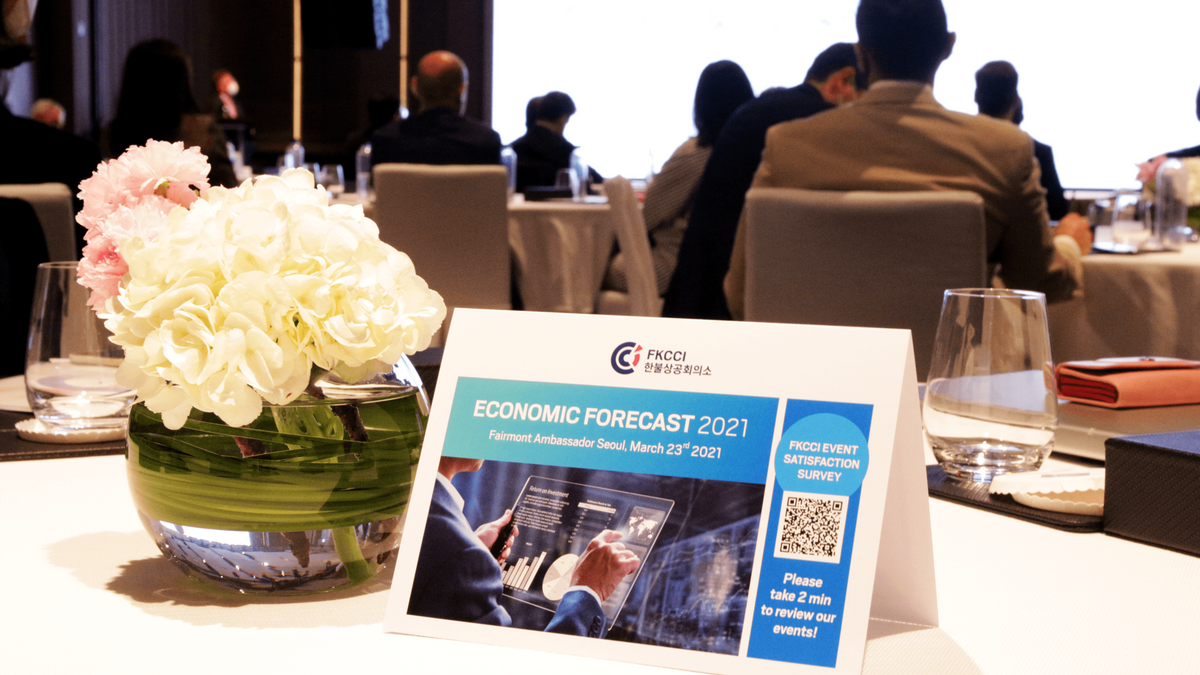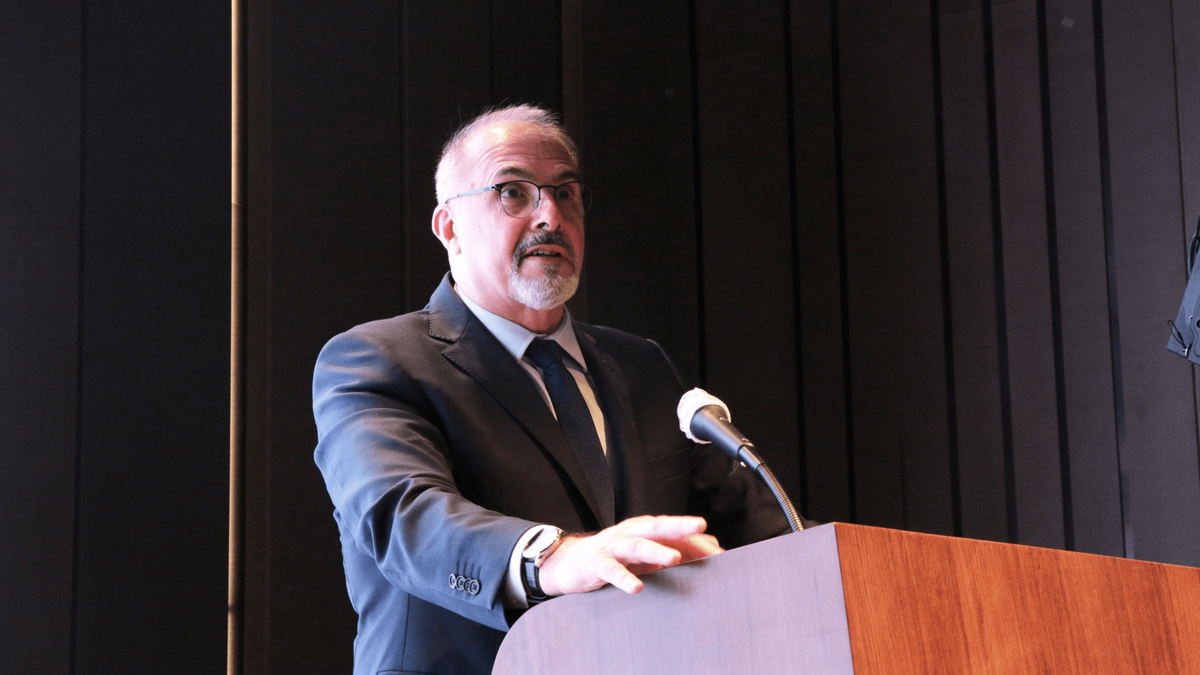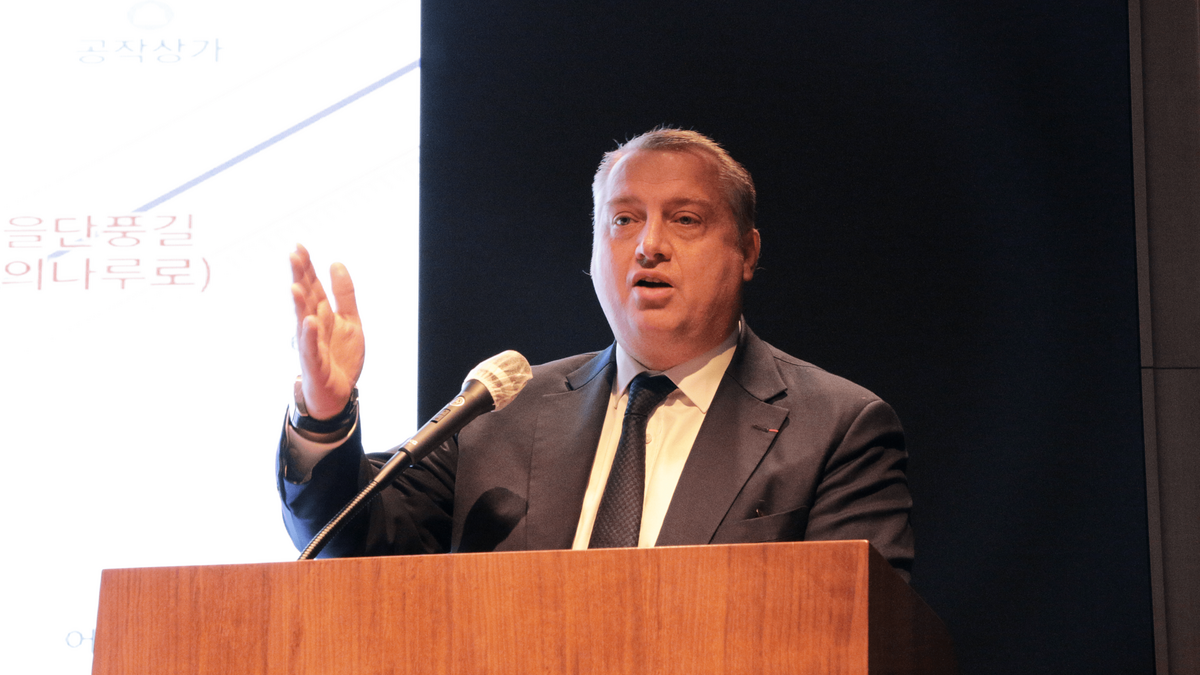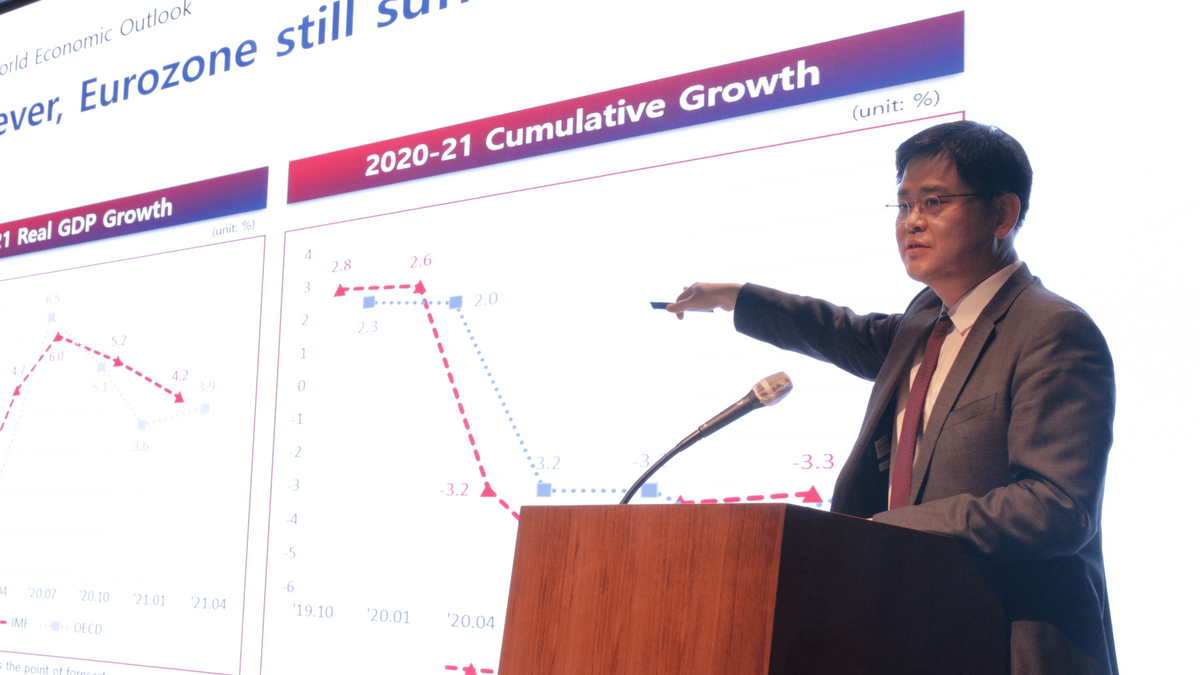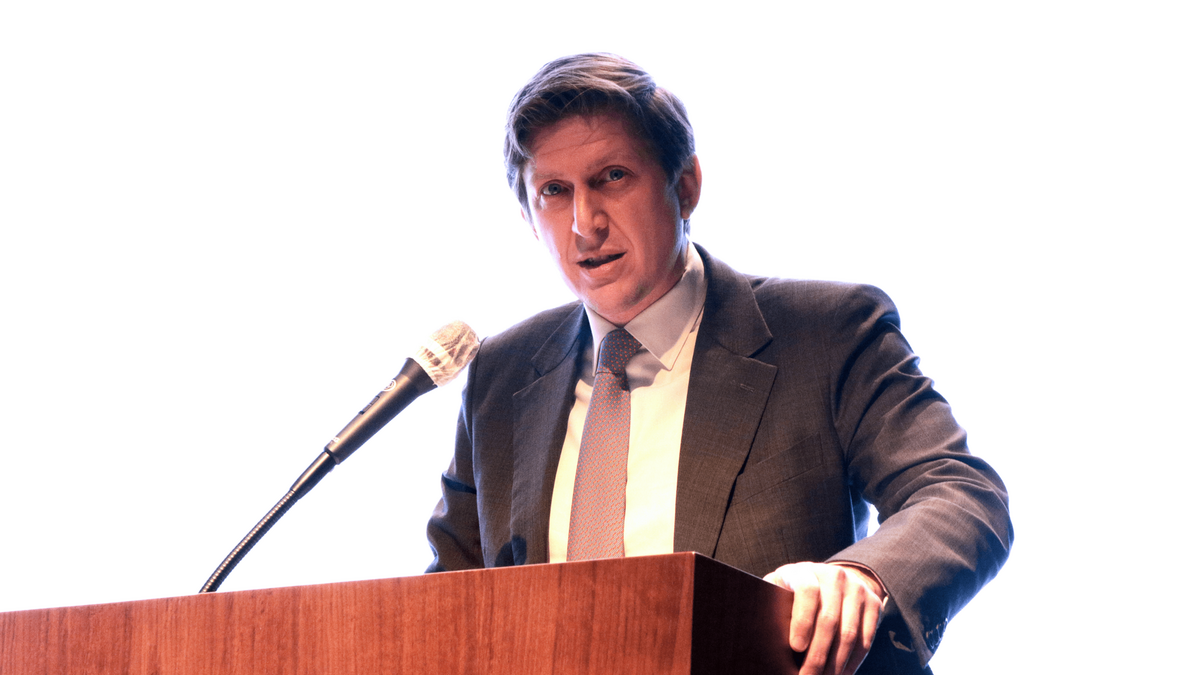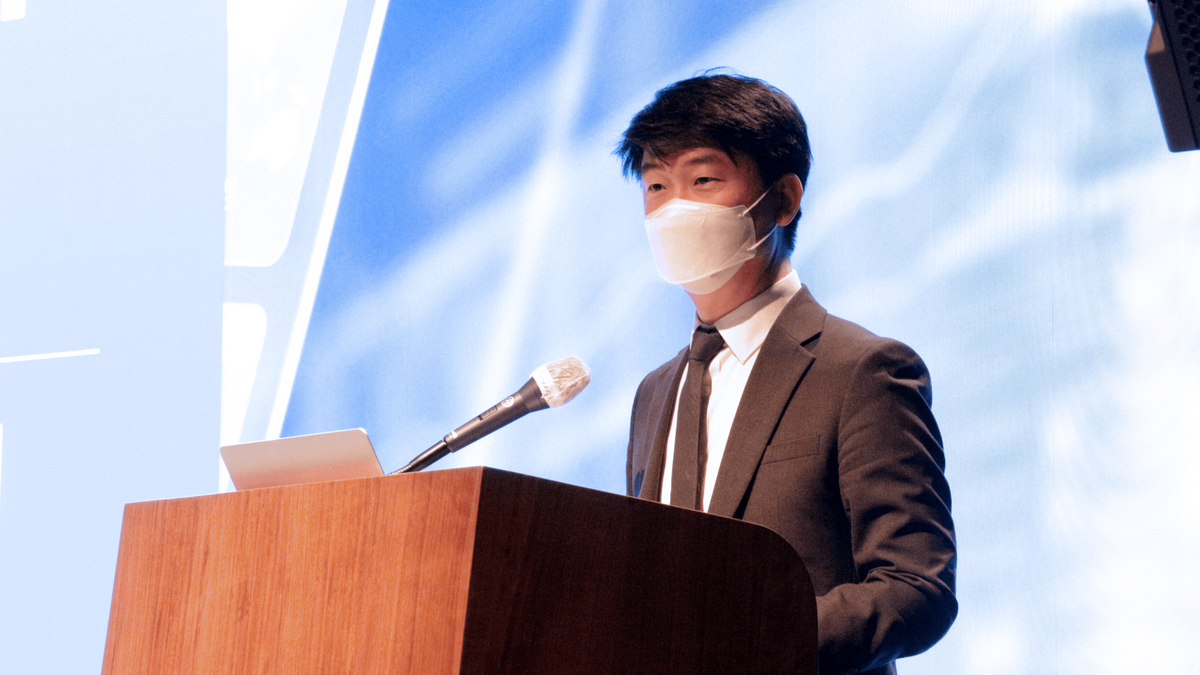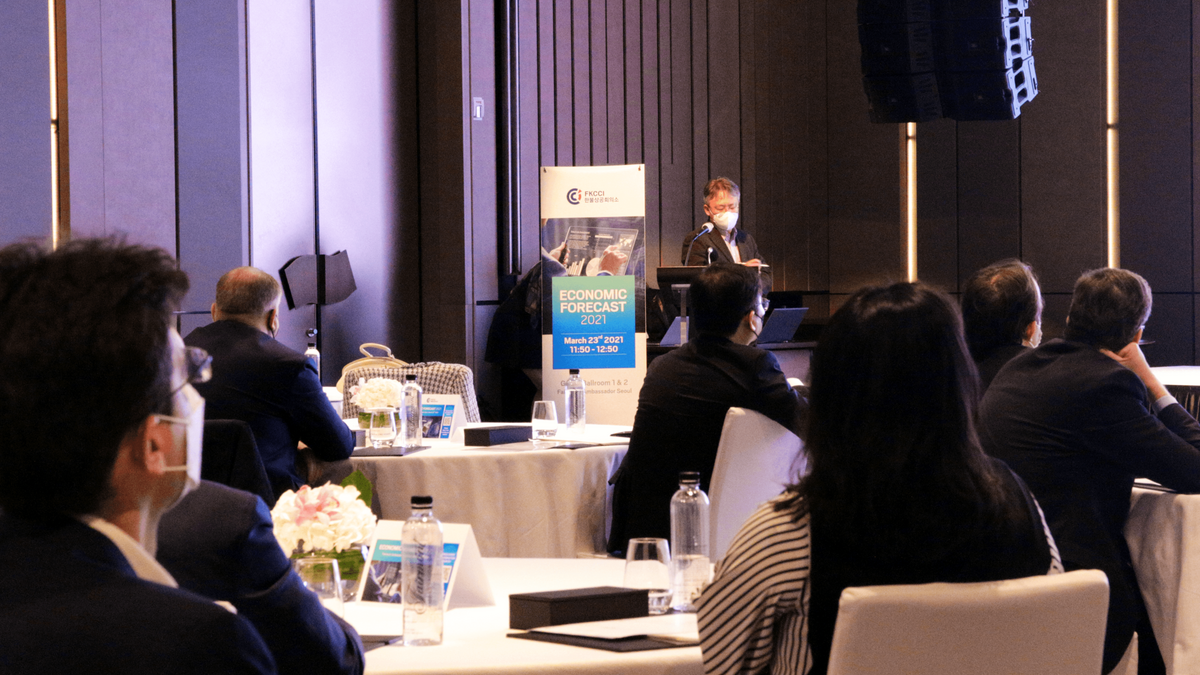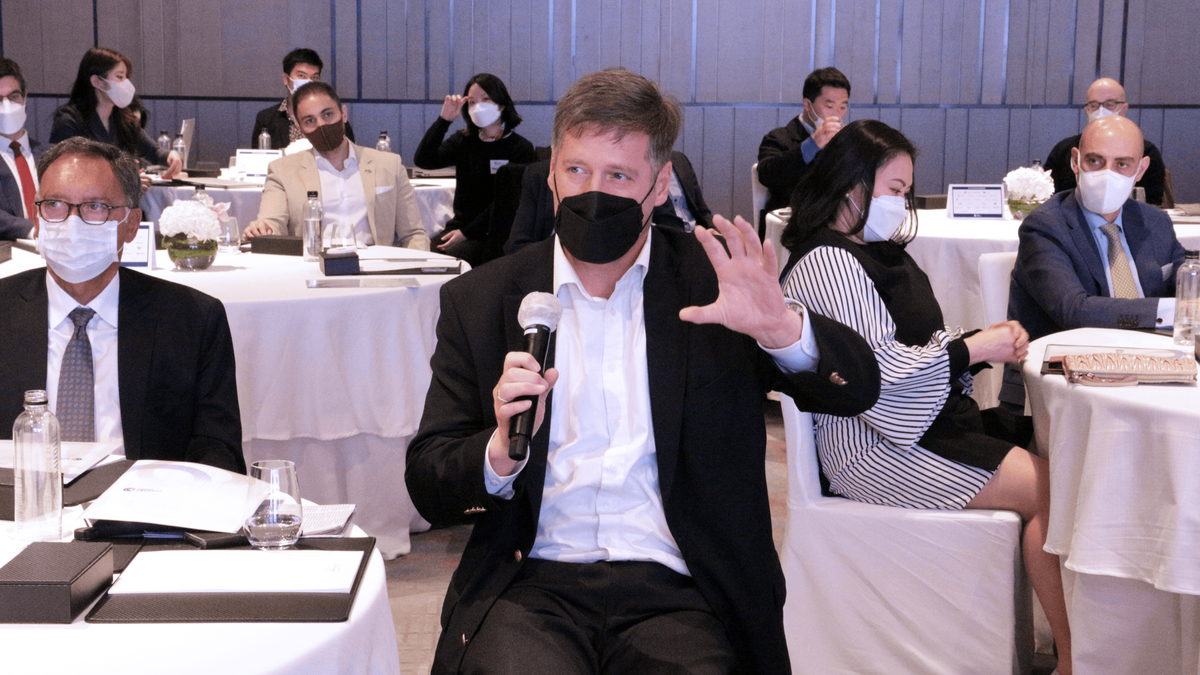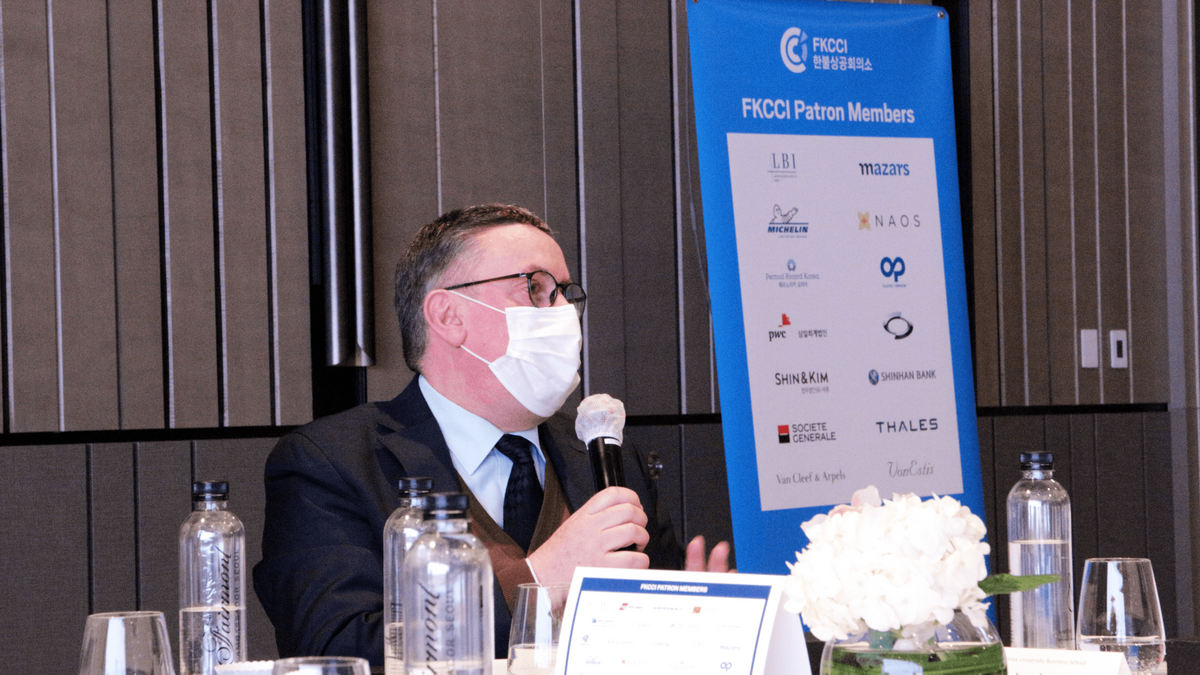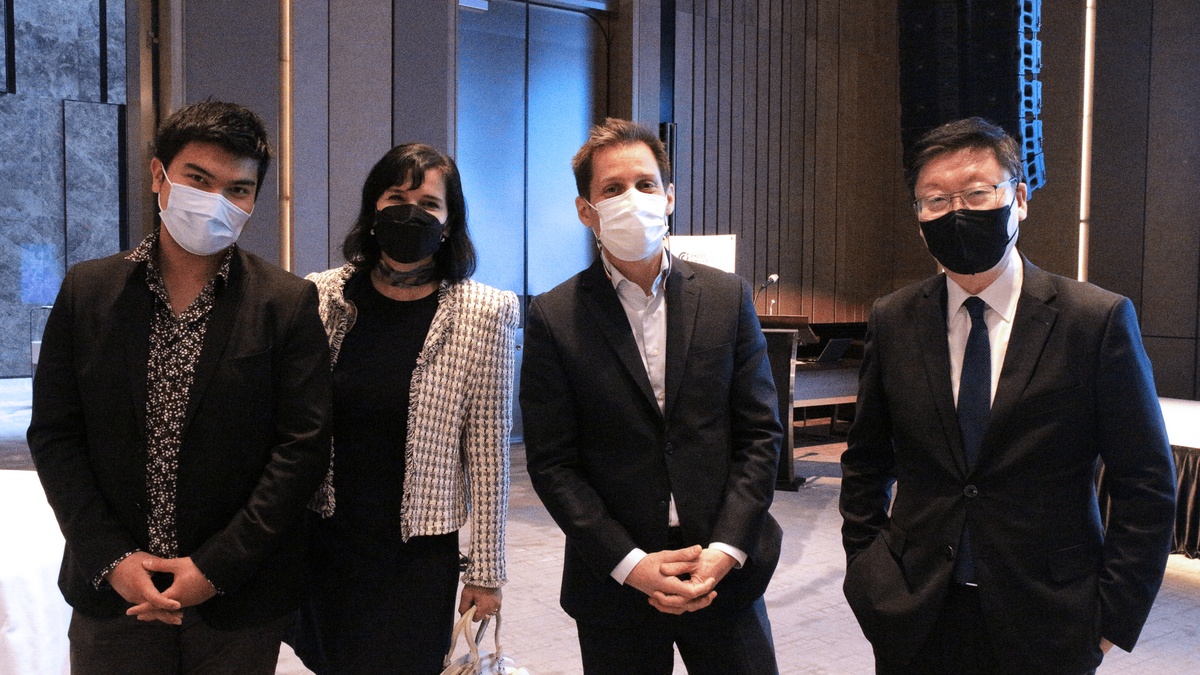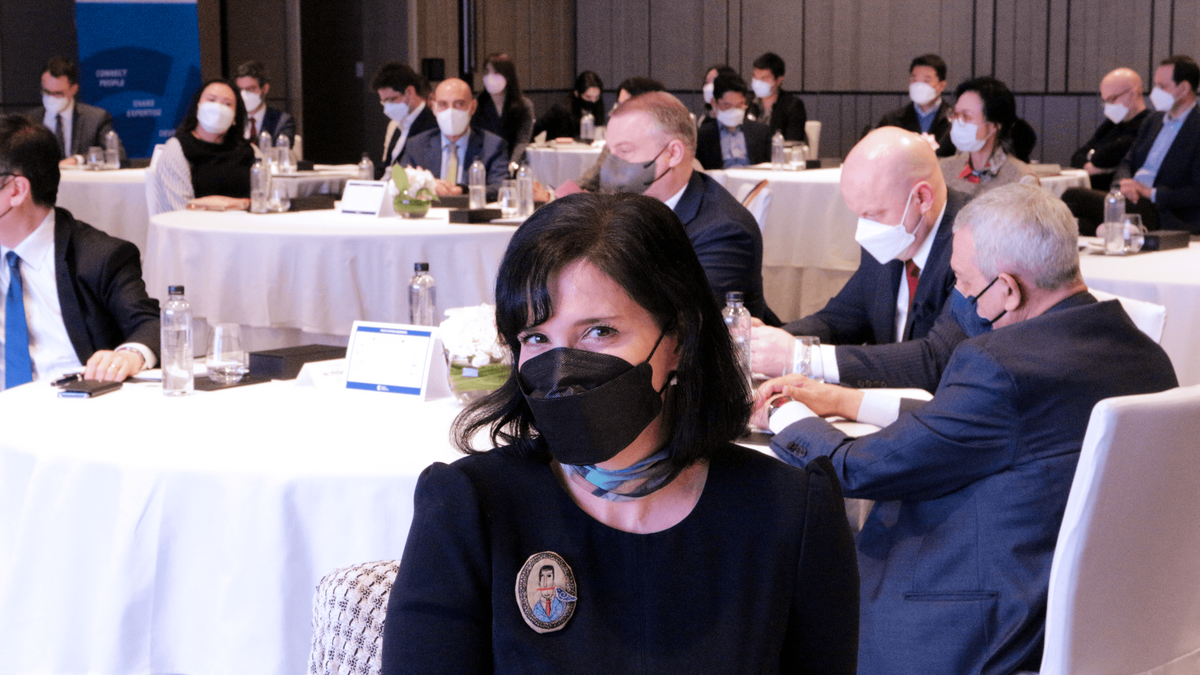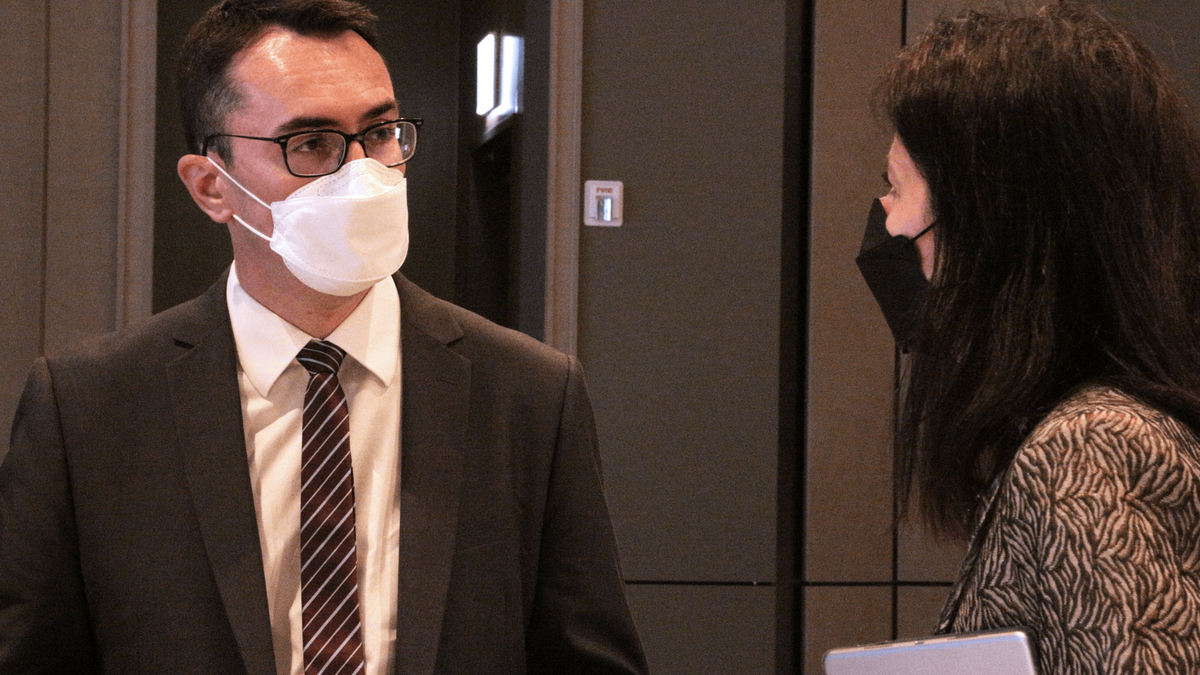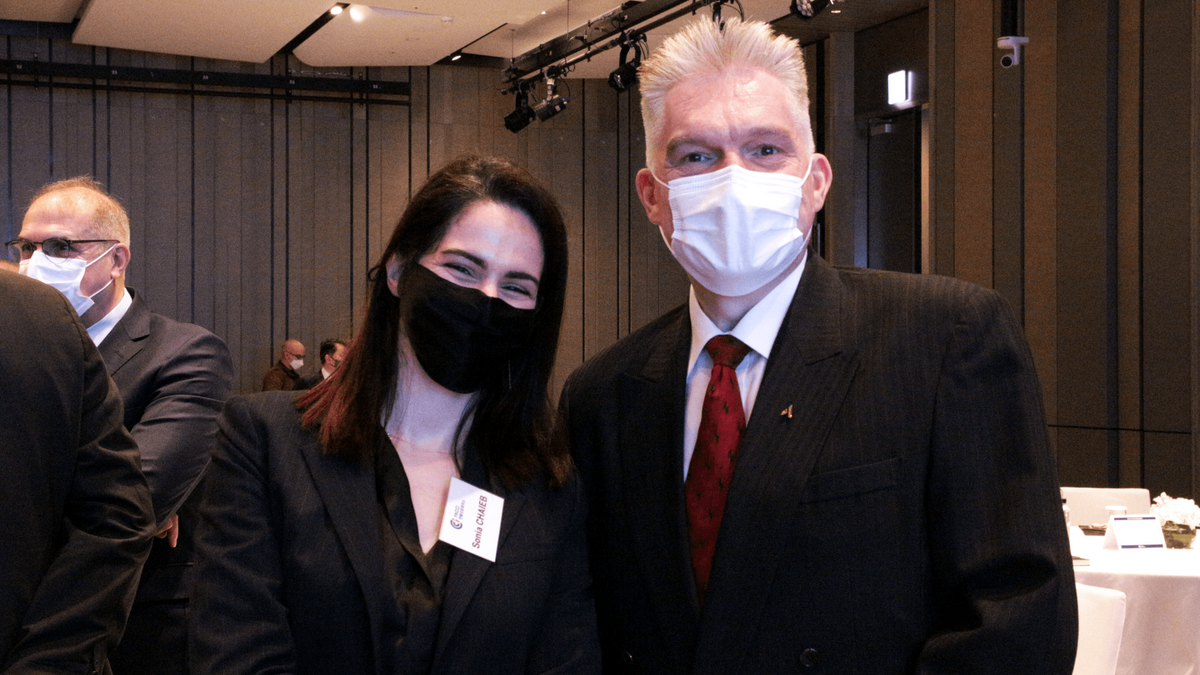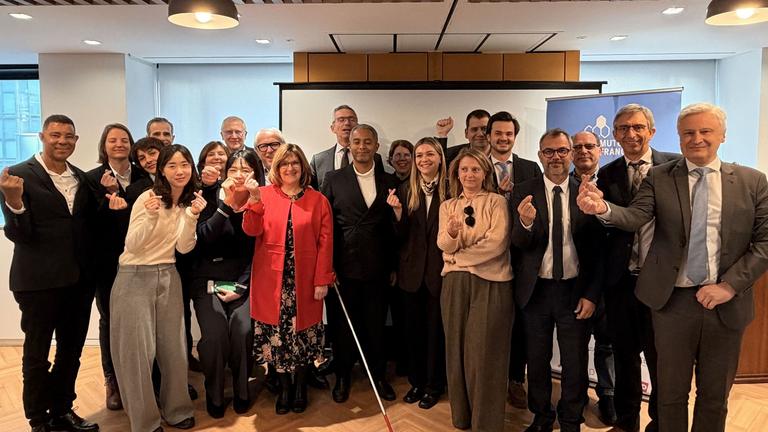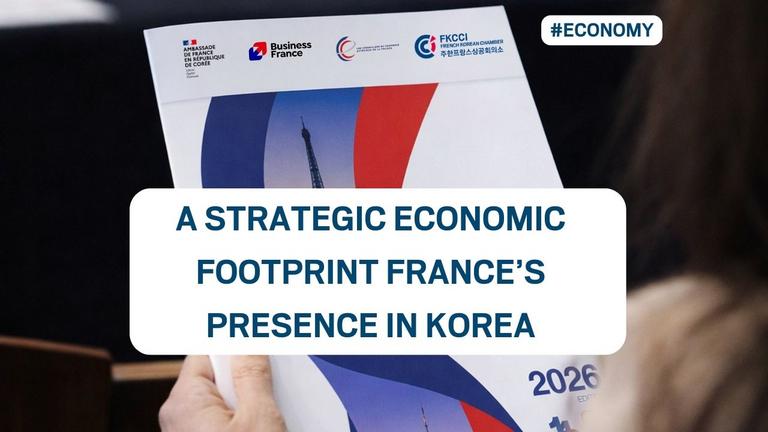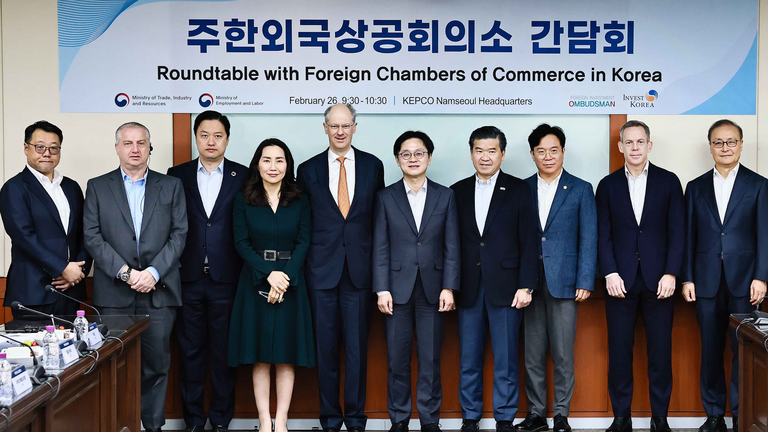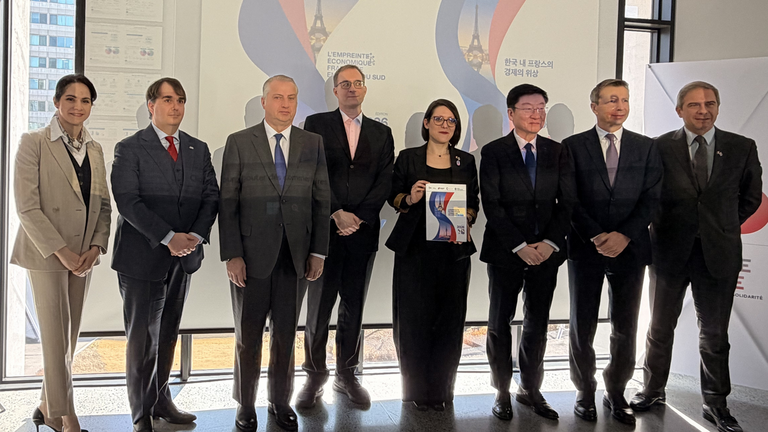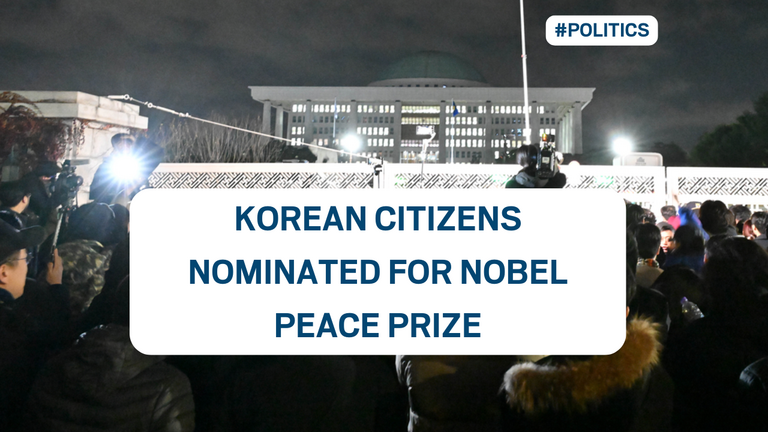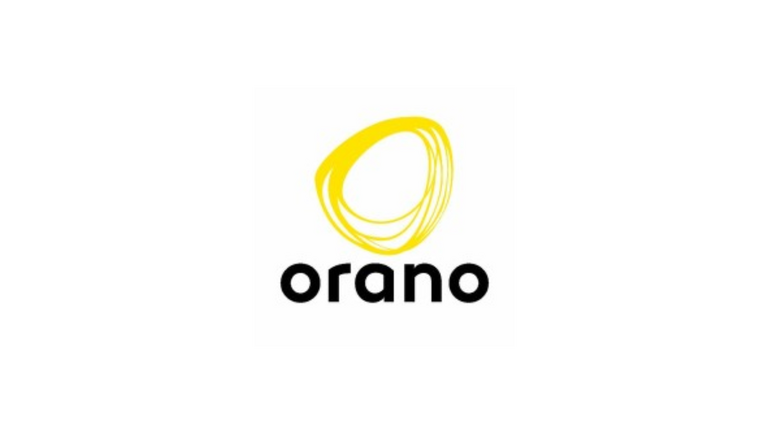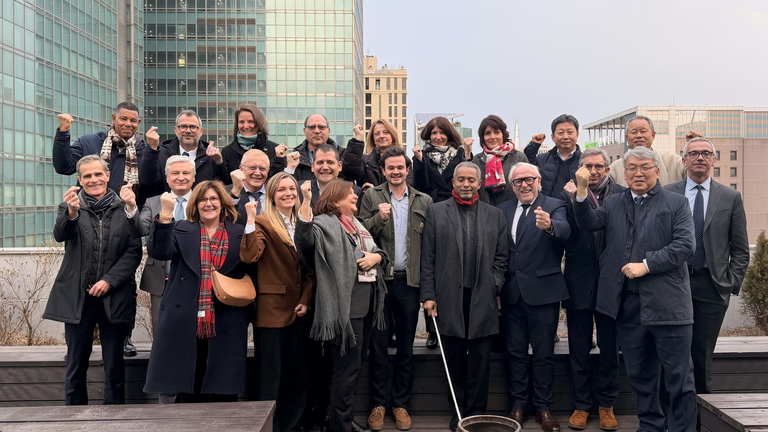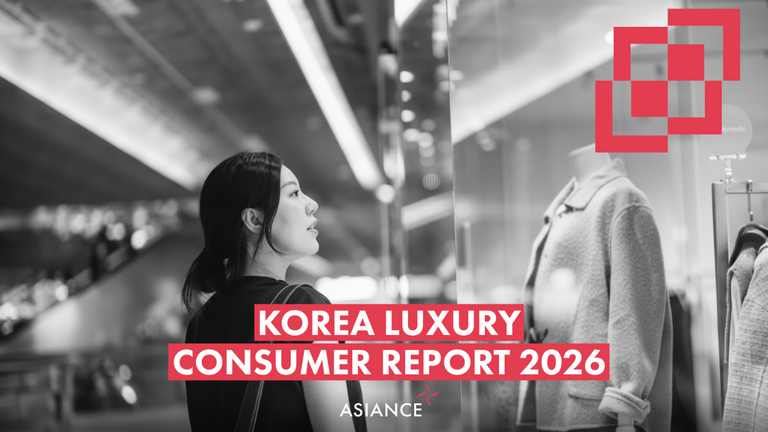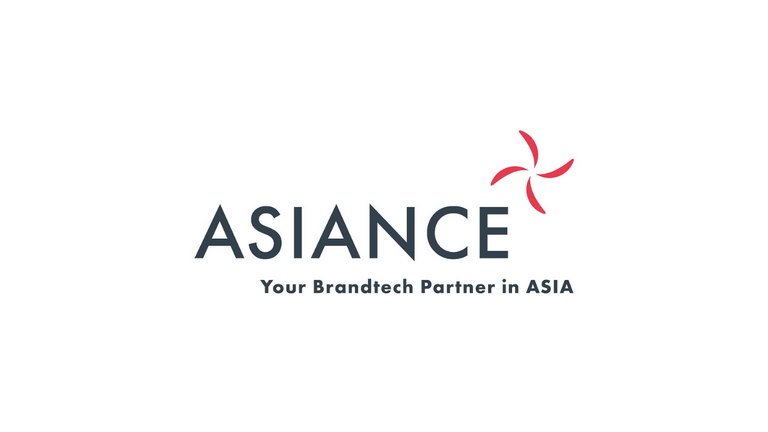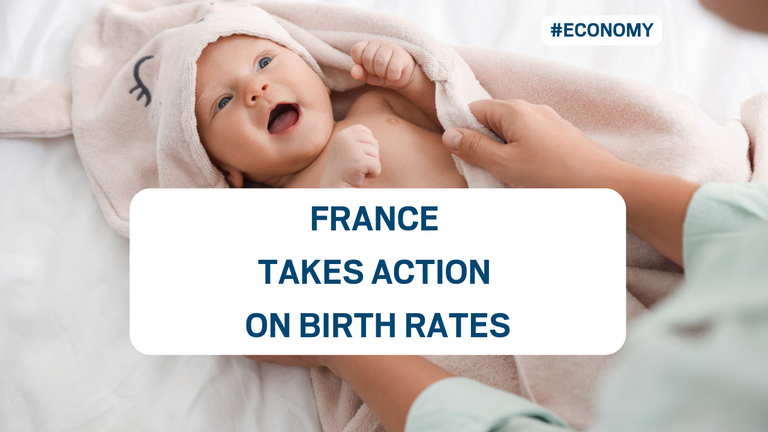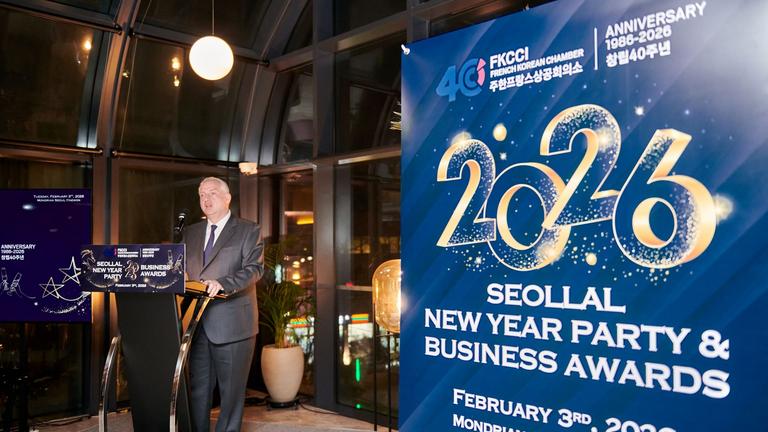Bilans d’évènement • Evènements
The French-Korean Chamber of Commerce and Industry (FKCCI) held its annual economic event Economic Forecast on March 23, 2021
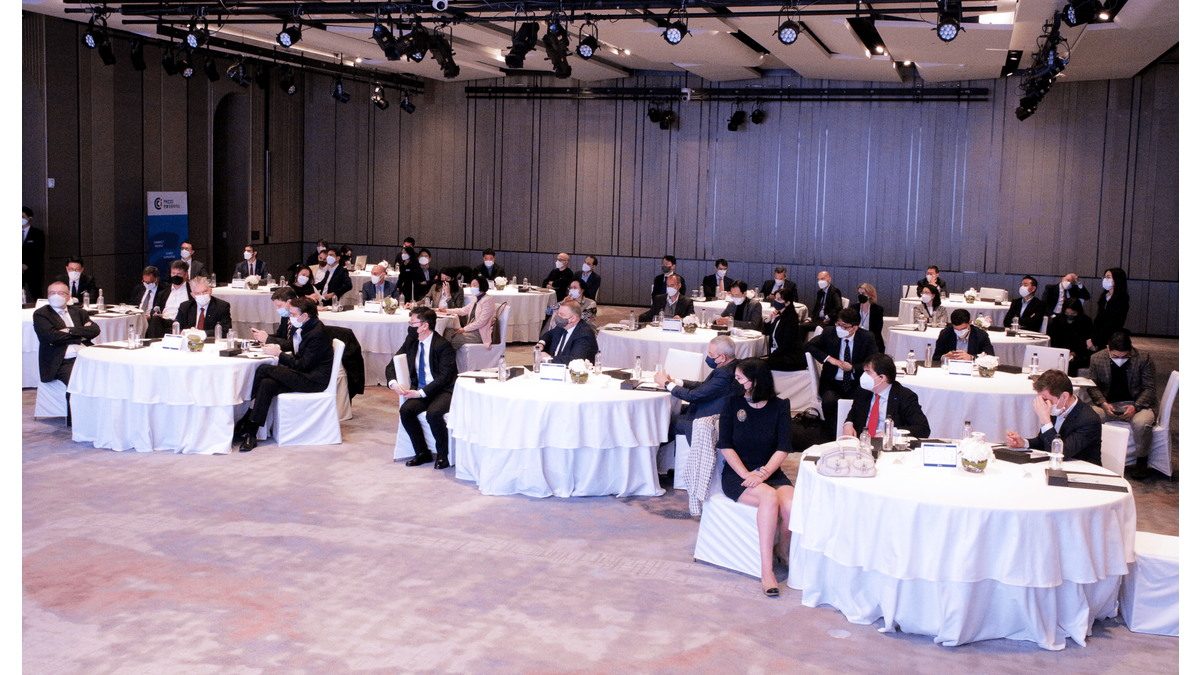
FKCCI gathered 50 high-level participants from the Korean and international business communities to discuss the economic perspectives for 2021.
In a context of eased sanitary restrictions in Korea, FKCCI has gathered 50 high-level participants from the Korean and international business communities at the newly opened Fairmont Ambassador Seoul to discuss the economic perspectives for 2021 both globally and in Korea.
The seminar was introduced by H.E. Mr. Philippe LEFORT, French Ambassador to Korea, David-Pierre JALICON, FKCCI Chairman and Dr. Janghyuk LEE, Professor at Korea University Business School, as moderator. It has been the opportunity for economic experts, Mr. Sungbae AN, Director of International Macroeconomics & Finance Department at the Korean Institute for International Economic Policy (KIEP), Michel DROBNIAK, Head of Economic Department at the French Embassy in Korea, Mr. Mathieu LACOUR, Head of Global Markets at the Seoul Branch of BNP Paribas, to evaluate the impact of the crisis and share their views on the end of 2021 and further.
These experts recalled Korea’s exceptional results for 2020 and underlined its resistance to the crisis. For Michel DROBNIAK, “Korea has done much better than the average OECD countries with only -1% growth in 2020 and should recover to its pre-crisis level this year, instead of 2022 for other OECD countries”. Indeed, according to the base scenario of the Bank of Korea, the GDP growth rate is estimated at +3% in 2021, and +2.5% in 2022. For Mr. AN, while the eurozone will still have difficulties in 2021 (-3.2 % of cumulative growth expected by the OECD in March), China and the United State should lead the global recovery, with respectively +10.3% and +2.8% of cumulative growth in March.
This optimism comes partly from ambitious global vaccination campaigns around the world together with expansionist policies and quantitative easing responses. On the peninsula, the Korean New Deal should allow the creation of 1.9 million jobs thanks to the mobilization of 160,000 billion KRW (115 billion EUR) over 5 years, half of which would be spent before the end of President Moon's five-year term. A support program that “shares many similarities with the France Relance plan, especially regarding green mobility” explains H.E. Mr. LEFORT. Although the Korean public debt is soaring, it is expected to remain largely manageable, while growth engines should experience a rebound in 2021: private consumption (+2%), facility investment (+5.3%), construction (+0.8%), exports (+6% in value driven by semiconductors sales). Sector wise, the rebound is expected to be unbalanced as services would recover more slowly than manufacturing industry, especially since offline retail and tourism will still lag behind other sectors. In this context, it has been highlighted that the crisis is only accelerating structural transformations that already started before the pandemic, and which are driven by digitalization, energy revolution, decarbonization, demographic changes and strengthening regional value chains.
“This new paradigm in term of financing and new policies is creating new challenges” said Mathieu LACOUR, highlighting several axes such as asset bubble, housing market, employment, currency exchange rates and inflation. We can wonder if such massive fiscal policies are not going to increase inflation although it has on a downward overall in Korea for the past 20 years. In this current uncertain context, the country decided last year to keep its public debt under the strict threshold of 60% and its deficit under 3%, to prepare for the upcoming challenges.
